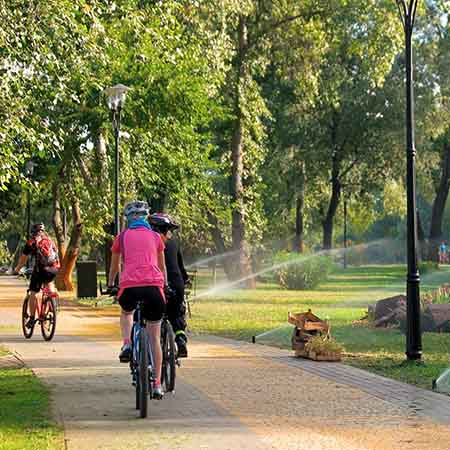Brevard County Utility Services Reclaimed Water

| Reclaim Area | Service Status |
|---|---|
| Barefoot Bay | On |
| Merritt Island | On |
| Mims | Off |
| South Beaches | On |
| Viera | On |
Brevard County Utility Services provides non-potable water for purposes like irrigation and landscape maintenance to unincorporated areas of Central Brevard including portions north Melbourne, Viera, Rockledge and Merritt Island.
Reclaimed Water Schedules
We have updated our watering schedule based on the St. Johns Water Management district practices. Please adhere to these changes and follow your specific watering schedule listed below.

Water is available from 12:00 AM to 10:00 AM, or until it runs out.
- All odd numbered addresses that end in 1, 3, 5, 7, or 9, will water on Wednesdays and Saturdays.
- All even numbered addresses that end in 0, 2, 4, 6, or 8 will water on Thursdays and Sundays.
- Commercial properties will water on Tuesdays and Fridays.
Sprinkler systems should be turned off from 10:00 AM to 12:00 AM to allow for tanks to be refilled for the next day. Unauthorized usage during off-hours significantly impacts our ability to refill the reuse water storage tanks, which in turn affects availability for all users the following day. Consistent off-hour usage prevents the system from recovering and may lead to limited or interrupted service.
Reclaimed water is wastewater that receives advanced treatment and filtration, resulting in safely recycled water suitable for lawn irrigation and many other uses.
Reclaimed water can be used for:
- Landscape irrigation
- Hose system irrigation with an approved spigot security device
- Irrigation of citrus
With specific authorization, reclaimed water may be used for:
- Edible crops that will be peeled, cooked or thermally processed
- Decorative fountains
- Fire protection
Reclaimed water may NOT be used for:
- Filling swimming pools, hot tubs, or wading pools
- Washing vehicles, sidewalks, or driveways
- Plumbing inside of any residence
- Irrigating edible crops that will NOT be peeled, cooked, or thermally processed
- Connected to any potable (drinking) water system
- Irrigation on a property served by a potable water well
Even though reclaimed water has been treated, disinfected and is safe for incidental human contact, it is not "drinking water" and has not been approved for human consumption or contact. Reclaimed water cannot be distributed for public use unless it meets strict treatment requirements which means continuous monitoring, sampling, and analysis. For this reason, the supply of reclaimed water may be interrupted for short periods, without warning, if the quality drops below these standards.
Reclaimed water plays an important role in the stewardship of Florida's water resources. Irrigation with reclaimed water reduces the need to dispose of sewage effluent in surface waters, such as the Indian River Lagoon, and ground waters.